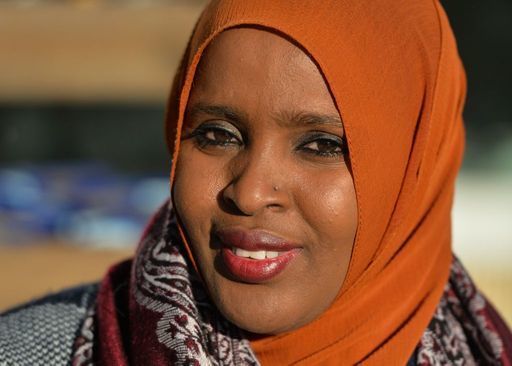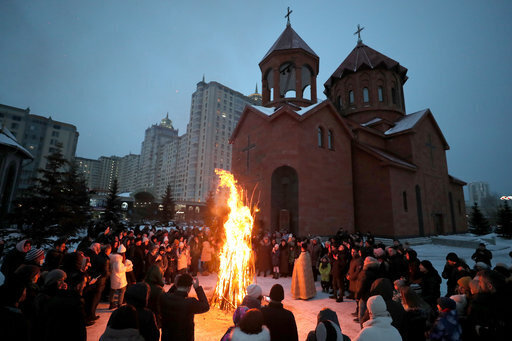In Ecuador’s presidential vote on 7 February left-wing candidate Andrés Arauz was leading in the returns on Sunday night. He will advance to a second round of voting on 11 April, where he will face the second-highest vote recipient. Conservative candidate Guillermo Lasso and Indigenous leader Yaku Pérez were vying for second place. The election is considered a referendum on “Correismo” the leftist movement of Rafael Correa, who was president from 2007 to 2017. His successor, Lenin Moreno, broke with Correa on economic issues and ushered in an unpopular deal with the IMF. Correa has been convicted for corruption and lives in Belgium but threw his weight behind Arauz. The Ecuadorian bishops called for a day of prayer and fasting before the election. Meanwhile thousands of Venezuelan refugees fleeing the country’s economic and social crisis are being offered a “welcome route” through Ecuador by the Scalabrinian Sisters. Three care centres have been set up which welcome migrants on their journey to Quito, the capital.
In the French port of Marseille, 1,200 sailors, mostly Filipinos, Indians, Indonesians, Costa Ricans and Ukrainians, have been confined on 16 ships for the past nine months due to the Covid pandemic. After seven ships asked for a Catholic Mass, the Marseille archdiocese was able to send priests to say Mass in some cases. It has now switched to YouTube after the success of its first Mass online. There are Masses in English said by a Filipino priest every first Saturday of the month and broadcast from Notre Dame de la Garde, the iconic basilica atop the hill overlooking Marseille’s Old Port.
Haiti’s political situation remained tense on Sunday 7 February, as President Jovenel Moïse rebuffed calls from social movements and opposition politicians to step down. A spree of kidnappings and gang violence has impacted people across the country. Moïse has been ruling by decree since last year but maintains that his five-year term ends one year from now, because an interim government occupied the first year. On Sunday, the government announced that 20 people had been arrested for allegedly attempting to kill Moïse and stage a coup. The Biden administration in the US continues to back Moïse’s commitment to hold elections in 2022, though the Bishops' Conference of Haiti has called on Moise to step down.
The US Supreme Court overturned California’s absolute ban on indoor worship services last week, permitting restricted numbers of people in a church at one time. And the court threw out two pending immigration cases that challenged funding for a border wall with Mexico and the Trump administration’s restrictive asylum policies. The Biden administration is planning on changing those policies, so the cases would be moot. President Joe Biden signed an executive order last week raising the cap on the number of refugees permitted into the US annually to 125,000 for fiscal year 2021, from 10,000 in 2020.
The Commonwealth of Virginia is poised to become the first southern US state to ban capital punishment after both houses in the state legislature voted to end the practice. Governor Ralph Northam, a Democrat, is expected to sign the bill into law.
In Mexico, a dozen police officers are facing charges of homicide, abuse of authority, and making false statements, following the murder of 19 people, mostly Guatemalan migrants, in Tamaulipas. The bodies were found on 22 January in the municipality of Camargo, near the border with Texas. Of the 16 victims identified 14 were Guatemalan and two Mexican.
The Ecclesial Network for Migrants, Refugees, and Trafficking Victims of the Latin American Council (Claamor) wrote in a letter to the Mexican government that it must protect migrants.Signatories of the letter included Cardinal Álvaro Ramazzini of Huehuetenango, Guatemala and Archbishop of Yucatan and Clamor president Gustavo Rodríguez Vega.
The Catholic bishops of Republic of the Congo(formerly Congo-Brazzaville) have expressed "grave reservations" about the fairness of the coming 21 March presidential election, in which 77-year-old President Denis Sassou-Nguesso seeks a new term after 37 years in power.The country lacks an "independent and credible electoral commission," they said last week and spokesman Archbishop Victor Abagna Mossa of Owando called on Catholics to form a "chain of prayer for peace, well-being and true dialogue" in parishes and to document “every violation of human dignity”. The main opposition party is boycotting the election.
A Catholic lawyer who helped found the pro-democracy movement has been nominated to receive the Nobel Peace Prize. Martin Lee, 82, known as Hong Kong’s “Father of Democracy,” was founding chairman in 1990 of Hong Kong’s first pro-democracy party and led the party’s successor, the Democratic Party, while serving in the territory’s legislature for more than two decades. Two Norwegian parliamentarians who nominated Lee for the prize, called him “a source of inspiration for the pro-democracy movement in Hong Kong and advocates for freedom around the world.”
More than 100,000 displaced people have fled recent violence in Darfur, western Sudan, mainly perpetrated by armed Arab militia. Some had only recently gone back to their villages after peace seemed to be returning and a joint United Nations-African Union peacekeeping mission, Unamid, conducted regular patrols. Tribal clashes in West and South Darfur in mid-January left some 250 people dead, coinciding with the end of Unamid’s mandate in Darfur. Bishop Yunan Andali of El Obeid, which includes Darfur,has argued that Unamid is still needed in the “fragile” situation.
Margaret Karram, an Arab Catholic originally from Haifa, Israel, was elected president of the Focolare Movement on 31 January. The election has been approved by the Dicastery for the Laity, Family and Life, in accordance with the statutes of the movement that focuses on the principles of unity and fraternity and was founded by Chiara Lubich in northern Italy in 1943. The statutes stipulate that the president must always be a woman, and Karram will serve for six years. Focolare held its general assembly online but Pope Francis met members in the Vatican’s Pope Paul VI Hall on 6 February. He said the movement must respond “to the new demands that humanity poses”. Karram, told the pope she accepted her new role with the “fiat” of the Virgin Mary, and thinks of herself rather as "a daughter of the Church" than a president.
During the pandemic, thousands of seafarers have been holed up in ports around the world unable to leave their ships because of the pandemic. In the French port of Marseille, 1,200 sailors have been confined on 16 ships for the past nine months. They are mostly Filipinos, Indians, Indonesians, Costa Ricans and Ukrainians. After seven ships asked for a Catholic Mass, the Marseille archdiocese was able to send priests to say Mass in some cases. It has now switched to YouTube after the success of its first Mass online. There are now Masses in English said by a Filipino priest every first Saturday of the month and broadcast from Notre Dame de la Garde, the iconic basilica atop the hill overlooking Marseille’s Old Port.



 Loading ...
Loading ...